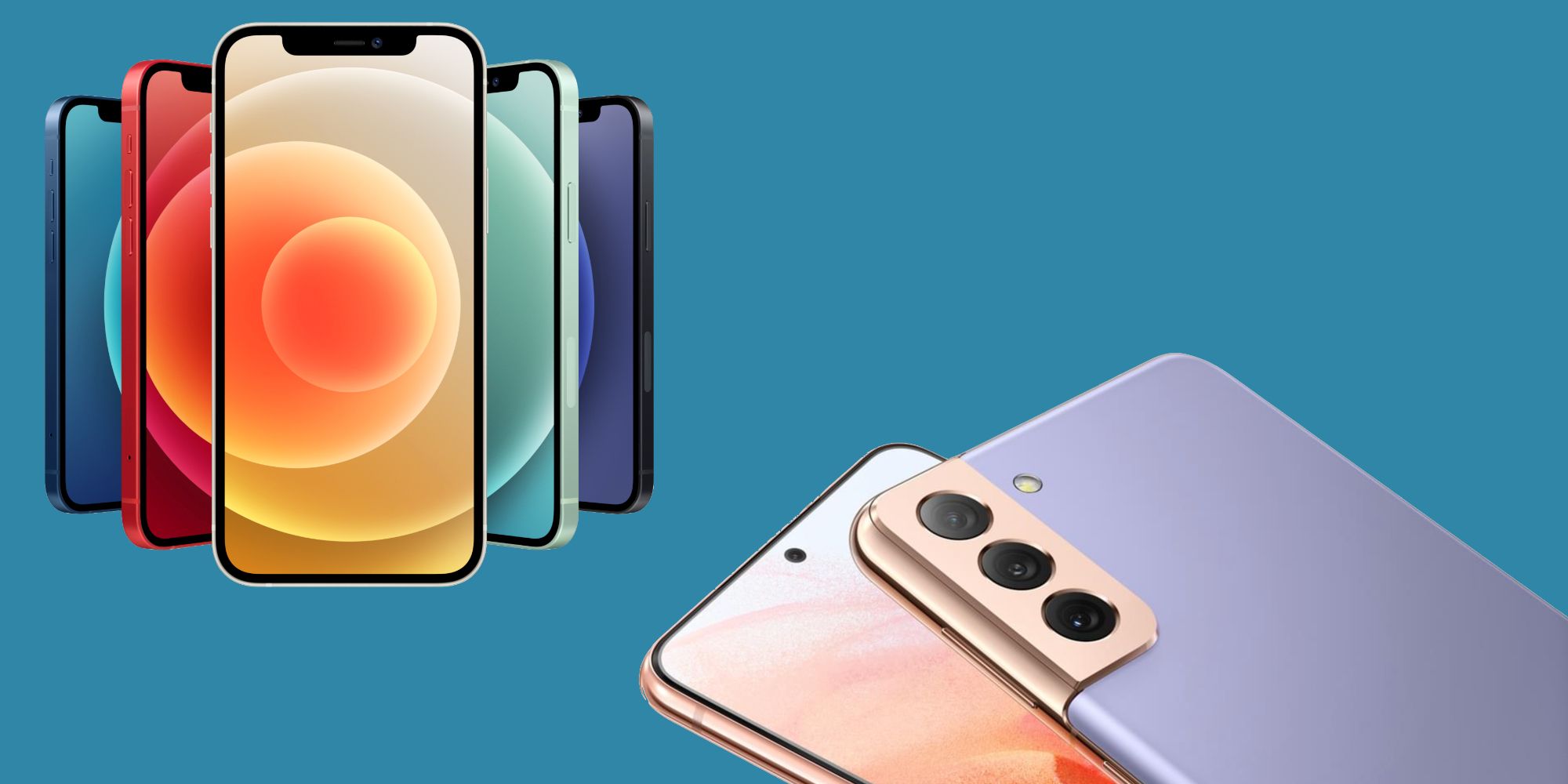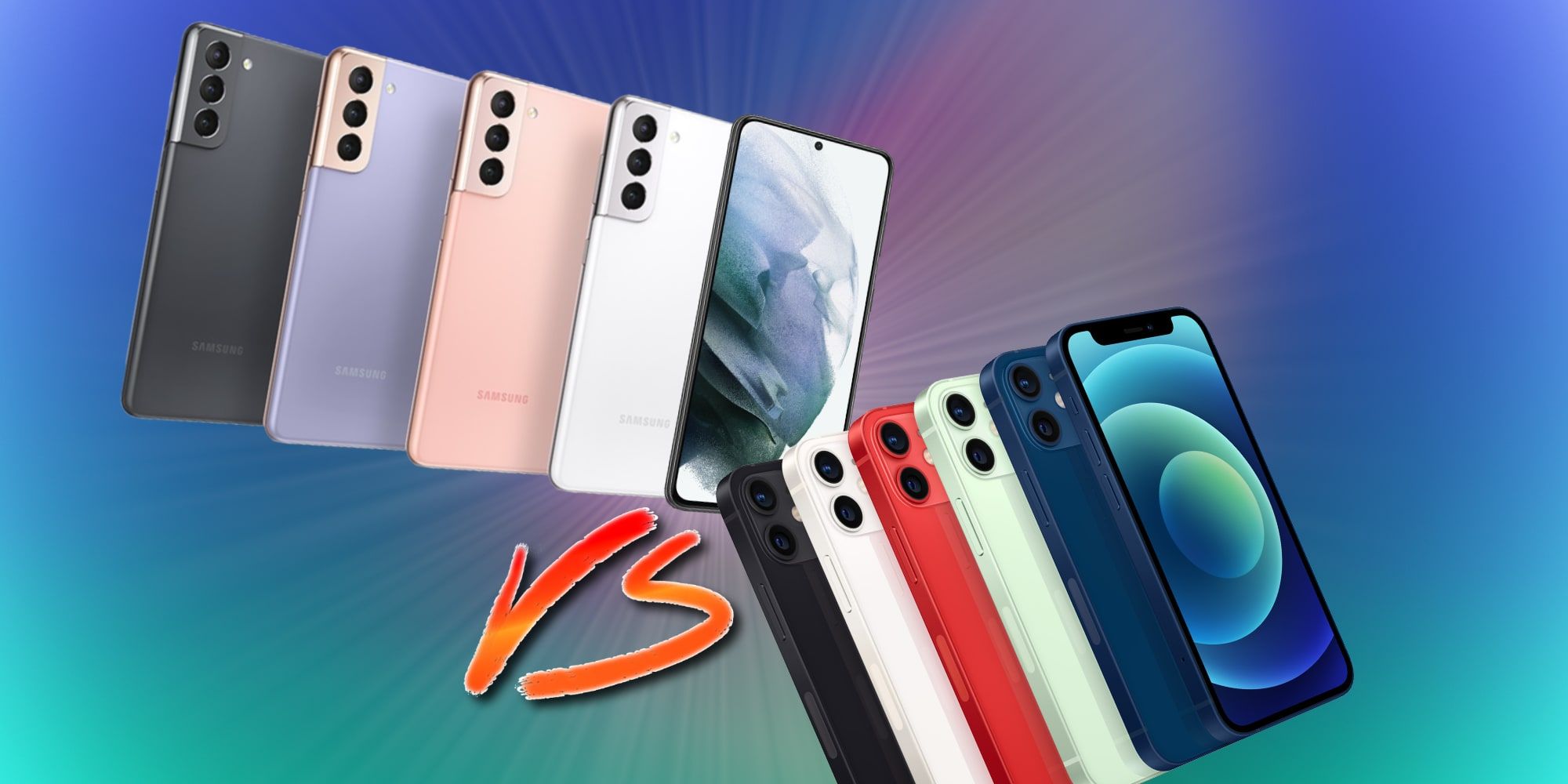The Galaxy S21 and iPhone 12 are two of the most capable smartphones here in 2021, but when it comes to work and productivity purposes, how do they stack up? For anyone that's gone shopping for a new Android smartphone or iPhone over the past year, that's undoubtedly a question that's popped up more than once. 2020 saw more people than ever working from home, and with that trend continuing in 2021 and beyond, having a smartphone that's well-suited for getting work done is a must.
Just about any smartphone these days is capable of being used for on-the-go work, but there are a few key specs/features that can take a phone to the next level in these regards. A big display makes it easier to view a document or PDF, a fast processor allows users to hop back and forth between multiple applications, a high-quality selfie camera means better Zoom calls, etc., etc. Samsung and Apple both deliver on a lot of these key areas, but depending on the particular workflow at hand, one could be a considerably better purchase over the other.
Starting first with specs, the Galaxy S21 takes the lead when it comes to the display. The 6.2-inch size is slightly larger than the iPhone 12's 6.1-inch panel, and with a much smaller cutout for the selfie camera compared to the iPhone's notch, there's more useable screen real-estate for sending emails, signing contracts, etc. An even bigger benefit is the Galaxy S21's refresh rate of 120Hz, allowing it to feel noticeably faster and snappier than the iPhone 12's standard 60Hz refresh rate. In regards to raw horsepower, both phones are more than well-equipped for virtually any task — the Galaxy S21 has the Snapdragon 888 while the iPhone 12 uses Apple's own A14 Bionic chip. The A14 is technically more powerful than the Snapdragon offering, but either phone delivers incredible power for day-to-day use.
The iPhone 12 And Galaxy S21 Are Both Productivity Powerhouses
Another concern for a lot of users is battery life, and here, the iPhone 12 has a slight edge. The 4,000 mAh battery in the Galaxy S21 sounds great on paper, but in real-world testing, it's good enough for one day of use and nothing more. For someone that has a particularly busy day of work, it's possible they'll need to throw the S21 on the charger before bedtime. The iPhone 12 will also need to be charged once a day, but it tends to have a bit more gas left in the tank for less overall battery anxiety. As for Zoom and Google Meet calls, the 10MP and 12MP front-facing cameras on the Galaxy S21 and iPhone 12, respectively, both do a great job of keeping users looking clear and in-focus for endless work chats.
Where things get a bit more interesting is on the software side of things. The Galaxy S21 is powered by Android (with Samsung's One UI interface) while the iPhone 12 runs iOS — and each platform has a few fantastic productivity-focused tools. The Galaxy S21 offers a feature called Link To Windows where users can sync the phone to their Windows PC for accessing texts, notifications, photos, and more on the desktop. Another great feature is Samsung DeX. When the Galaxy S21 is connected to a monitor or TV, it presents users with a Windows-like interface with resizable windows, file management, and more — effectively allowing the S21 to be used as an all-in-one computing device. There's no such feature on the iPhone 12, but it does have a host of productivity benefits for Mac owners. Users can open an app on the iPhone 12 and pick it up on their Mac, copy something on the iPhone and paste it on the Mac (and vice versa), and use AirDrop to wirelessly share files between the two devices. They're all small features on their own, but when used together during a busy workday, they're invaluable.
For a lot of people, then, it may come down to a matter of ecosystem preference. The Galaxy S21 is a fantastic option for people that use Windows, the iPhone 12 works great for Mac owners, and that's all there is to it. There are some smaller differences, sure, but this is where the two really differentiate themselves.


